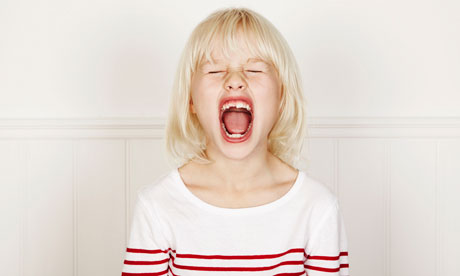
About 5% of British children aged five to eight have conduct disorders and associated antisocial behaviour, according to the Office of National Statistics. Could your child could be one? The National Institute for Health and Care Excellence (Nice) says that 30% of GP consultations about children are to do with behavioural problems.
Last week Nice published guidance on how to recognise and treat them. It warns that children who don't get help have an increased risk of underachieving at school, social isolation and criminality.
The usual suspects are in the frame for causing conduct disorders: genetics, which may affect how the brain is wired, and environmental factors, mainly the family. Peter Fonagy, a professor of psychoanalysis at University College London, says that studies show that parenting styles can affect how children behave as much as being socially disadvantaged.
So do you and your child need help?
The solution
Nice says the core signs of conduct disorder in under-11s are defiance and hostility that are more than normal naughtiness. Those over 11 will behave antisocially in many situations, says Fonagy. "They will lie and cheat; take advantage of, hurt and bully other people. They will be aggressive. They show an extreme form of selfishness in which they are no longer concerned with the wellbeing of someone else and do not seem to care about the consequences of their actions." This is, he says, quantifiably different from ordinary teenage behaviour.
Nice advises that on recognising these signs, contact should be made with your GP. The interventions it cites as helpful include parent-training programmes, problem-solving help for children and in rare instances the use of drugs, typically those used for attention deficit disorder.
Fonagy says that no one should blame parents, but that they can get into patterns of interactions that make things worse. Instead of being authoritarian, he suggests shaping behaviour by using rewards rather than punishments. Younger children can be distracted and defiant behaviour ignored. "You are likely to use punishments if your child opposes you, but actually this makes your capacity to control their behaviour weaker. If you spend time in pleasurable activities with your child, they will want to please you."
To people who say that naughtiness shouldn't be medicalised, he warns that ignoring conduct disorder is neglectful. Nice says that early interventions, which all in part rely on family training to reduce the child's antisocial behaviour, are most likely to be effective.
Find out more
Nice: Conduct disorders guidelines
Great Ormond Street Hospital: Conduct disorders
NHS: Attention deficit disorder

